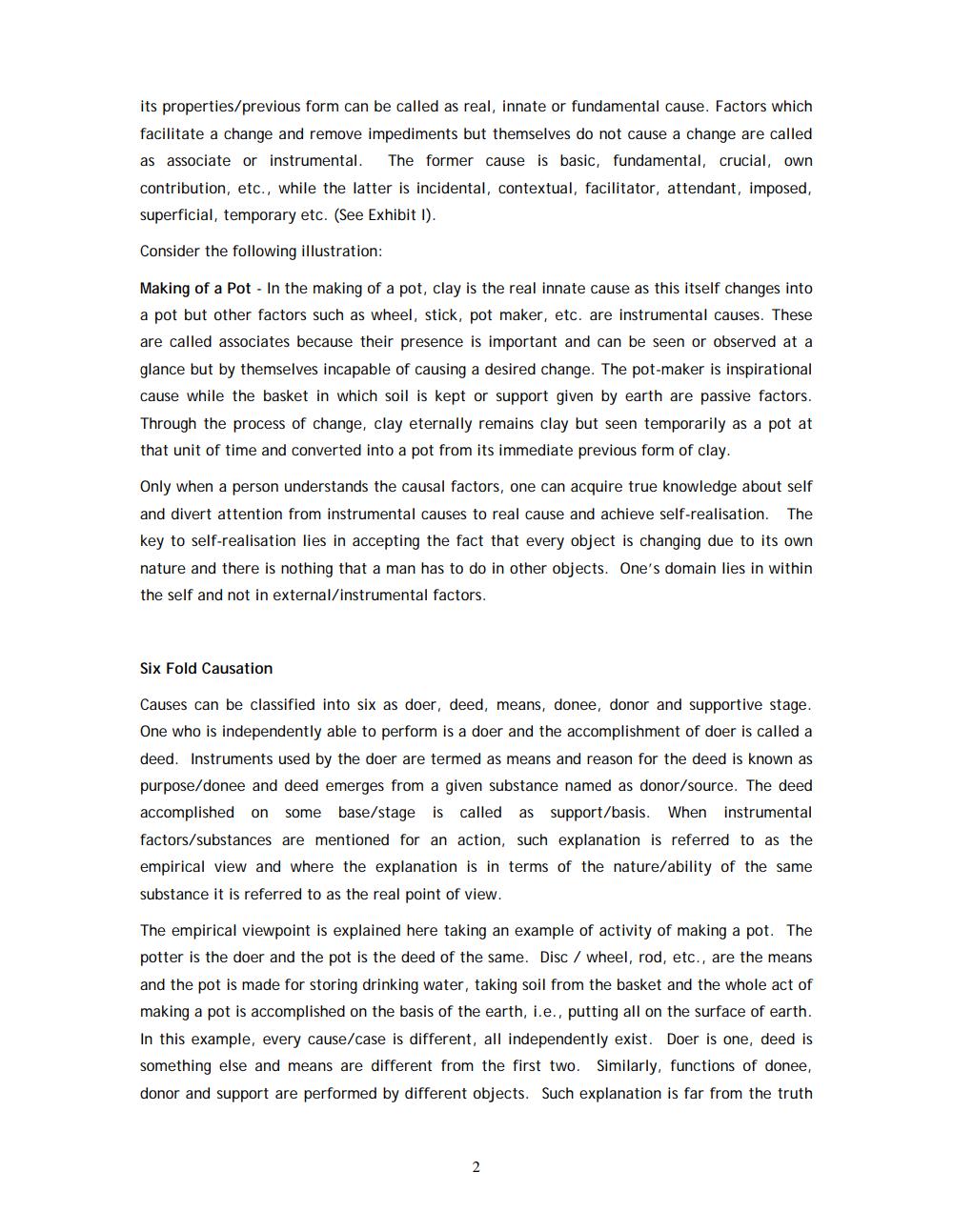Book Title: Non Violence and its Causes Author(s): Jayantilal Jain Publisher: Jayantilal Jain View full book textPage 2
________________ its properties/previous form can be called as real, innate or fundamental cause. Factors which facilitate a change and remove impediments but themselves do not cause a change are called as associate or instrumental. The former cause is basic, fundamental, crucial, own contribution, etc., while the latter is incidental, contextual, facilitator, attendant, imposed, superficial, temporary etc. (See Exhibit I). Consider the following illustration: Making of a Pot - In the making of a pot, clay is the real innate cause as this itself changes into a pot but other factors such as wheel, stick, pot maker, etc. are instrumental causes. These are called associates because their presence is important and can be seen or observed at a glance but by themselves incapable of causing a desired change. The pot-maker is inspirational cause while the basket in which soil is kept or support given by earth are passive factors. Through the process of change, clay eternally remains clay but seen temporarily as a pot at that unit of time and converted into a pot from its immediate previous form of clay. Only when a person understands the causal factors, one can acquire true knowledge about self and divert attention from instrumental causes to real cause and achieve self-realisation. The key to self-realisation lies in accepting the fact that every object is changing due to its own nature and there is nothing that a man has to do in other objects. One's domain lies in within the self and not in external/instrumental factors. Six Fold Causation Causes can be classified into six as doer, deed, means, donee, donor and supportive stage. One who is independently able to perform is a doer and the accomplishment of doer is called a deed. Instruments used by the doer are termed as means and reason for the deed is known as purpose/donee and deed emerges from a given substance named as donor/source. The deed accomplished on some base/stage is called as support/basis. When instrumental factors/substances are mentioned for an action, such explanation is referred to as the empirical view and where the explanation is in terms of the nature/ability of the same substance it is referred to as the real point of view. The empirical viewpoint is explained here taking an example of activity of making a pot. The potter is the doer and the pot is the deed of the same. Disc / wheel, rod, etc., are the means and the pot is made for storing drinking water, taking soil from the basket and the whole act of making a pot is accomplished on the basis of the earth, i.e., putting all on the surface of earth. In this example, every cause/case is different, all independently exist. Doer is one, deed is something else and means are different from the first two. Similarly, functions of donee, donor and support are performed by different objects. Such explanation is far from the truthPage Navigation
1 2 3 4 5
